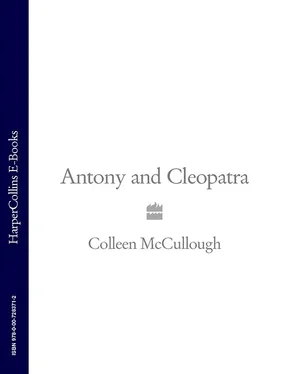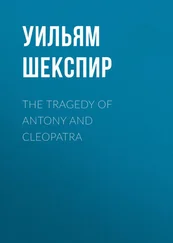The sorrows were many. First and worst, River Nilus failed to inundate. For three years in a row, the life-giving water had not spread across the fields to wet them, soak in and soften the seeds. The people starved. Then came the plague, slowly creeping up the length of River Nilus from the cataracts to Memphis and the start of the Delta, then into the branches and canals of the Delta, and finally to Alexandria.
And always, she thought, I made the wrong decisions, Queen Midas on a throne of gold who didn’t understand until it was too late that people cannot eat gold. Not for any amount of gold could I persuade the Syrians and the Arabs to venture down Nilus and collect the jars of grain waiting on every jetty. It sat there until it rotted, and then there were not enough people to irrigate by hand, and no crops germinated at all. I looked at the three million inhabitants of Alexandria and decided that only one million of them could eat, so I issued an edict that stripped the Jews and Metics of their citizenship. An edict that forbade them to buy wheat from the granaries, the right of citizens only. Oh, the riots! And it was all for nothing. The plague came to Alexandria and killed two million without regard for citizenship. Greeks and Macedonians died, people for whom I had abandoned the Jews and Metics. In the end, there was plenty of grain for those who did not die, Jews and Metics as well as Greeks and Macedonians. I gave them back the citizenship, but they hate me now. I made all the wrong decisions. Without Caesar to guide me, I proved myself a poor ruler.
In less than two months my son will be six years old, and I am childless, barren. No sister for him to marry, no brother to take his place should anything befall him. So many nights of love with Caesar in Rome, yet I did not quicken. Isis has cursed me.
Apollodorus hurried in, his golden chain of office clinking. ‘My lady, an urgent letter from Pythodorus of Tralles.’
Down went the hand, up went the chin. Cleopatra frowned. ‘Pythodorus? What does he want?’
‘Not gold, at any rate,’ said Caesarion, looking up from his tablets with a grin. ‘He’s the richest man in Asia Province.’
‘Pay attention to your sums, boy!’ said Sosigenes.
Cleopatra got up from her chair and walked across to an open section of wall where the light was good. A close examination of the green wax seal showed a small temple in its middle and the words PYTHO · TRALLES around its edge. Yes, it seemed authentic. She broke it and unfurled the scroll, written in a hand that said no scribe had been made privy to its contents. Too untidy.
Pharaoh and Queen, Daughter of Amun-Ra,
I write as one who loved the God Julius Caesar for many years, and as one who respected his devotion to you. Though I am aware you have informants to keep you apprised of what is going on in Rome and the Roman world, I doubt that any of them stands high in the confidence of Marcus Antonius. You will of course know that Antonius journeyed from Philippi to Nicomedia last November, and that many kings, princes and ethnarchs met him there. He did virtually nothing to alter the state of affairs in the East, but he did command that twenty thousand silver talents be paid to him immediately. The size of this tribute shocked all of us.
After visiting Galatia and Cappadocia, he arrived in Tarsus. I followed him with the two thousand silver talents that we ethnarchs of Asia Province had managed to scrape together. Where were the other eighteen thousand talents? he asked. I think I succeeded in convincing him that nothing like this sum is to be found, but his answer was one we have grown used to: pay him nine more years’ tribute in advance, and we would be forgiven. As if we have salted away ten years’ tribute against the day! They just do not listen, these Roman governors.
I crave your pardon, great Queen, for burdening you with our troubles, and our troubles are not why I am writing this in secret. This is to warn you that within a very few days you will receive a visit from one Quintus Dellius, a grasping, cunning little man who has wormed his way into Marcus Antonius’s good opinion. His whisperings into Antonius’s ear are aimed at filling Antonius’s war chest, for Antonius hungers to do what Caesar did not live to do – conquer the Parthians. Cilicia Pedia is being scoured from end to end, the brigands chased from their strongholds and the Arab raiders back across the Amanus. A profitable exercise, but not profitable enough, so Dellius suggested that Antonius summon you to Tarsus and there fine you ten thousand gold talents for supporting Gaius Cassius.
There is nothing I can do to help you, dear good Queen, beyond warn you that Dellius is even now upon his way south. Perhaps with foreknowledge you will have the time to devise a scheme to thwart him and his master.
Cleopatra handed the scroll back to Apollodorus and stood chewing her lip, eyes closed. Quintus Dellius? Not a name she recognized, therefore no one with sufficient clout in Rome to have attended her receptions, even the largest; Cleopatra never forgot a name or the face attached to it. He would be a Vettius, some ignoble knight with smarm and charm, just the type to appeal to a boor like Marcus Antonius. Him, she remembered! Big and burly, thews like Hercules, shoulders as wide as mountains, an ugly face whose nose strove to meet an upthrust chin across a small, thick-lipped mouth. Women swooned over him because he was supposed to have a gigantic penis – what a reason to swoon! Men liked him for his bluff, hearty manner, his confidence in himself. But Caesar, whose close cousin he was, had grown disenchanted with him – the main reason, she was sure, why Antonius’s visits to her had been few. When left in charge of Italia he had slaughtered eight hundred citizens in the Forum Romanum, a crime Caesar could not forgive. Then he tried to woo Caesar’s soldiers and ended in instigating a mutiny that had broken Caesar’s heart.
Of course her agents had reported that many thought Antony was a part of the plot to assassinate Caesar, though she herself was not sure; the occasional letter Antony had written to her explained that he had had no choice other than to ignore the murder, forswear vengeance on the assassins, even condone their conduct. And in those letters Antony had assured her that, as soon as Rome settled down, he would recommend Caesarion to the Senate as one of Caesar’s chief heirs. To a woman devastated by grief, his words had been balm. She wanted to believe them! Oh, no, he wasn’t saying that Caesarion should be admitted into Roman law as Caesar’s Roman heir! Only that Caesarion’s right to the throne of Egypt should be sanctioned by the Senate. Were it not, her son would be faced by the same problems that had dogged her father, never certain of his tenure of the throne because Rome said Egypt really belonged to Rome. Anymore than she herself had been certain until Caesar entered her life. Now Caesar was gone, and his nephew Gaius Octavius had usurped more power than any lad of eighteen had ever done before. Calmly, cannily, quickly. At first she had thought of young Octavian as a possible father for more children, but he had rebuffed her in a brief letter she could still recite by heart.
Marcus Antonius, he of the reddish eyes and curly reddish hair, no more like Caesar than Hercules was like Apollo. Now he had turned his eyes toward Egypt – but not to woo Pharaoh. All he wanted was to fill his war chest with Egypt’s wealth. Well, that would never happen – never!
‘Caesarion, it’s time you had some fresh air,’ she said with brisk decision. ‘Sosigenes, I need you. Apollodorus, find Cha’em and bring him back with you. It’s council time.’
When Cleopatra spoke in that tone, no one argued, least of all her son, who took himself off at once, whistling for his puppy, a small ratter named Fido.
Читать дальше












